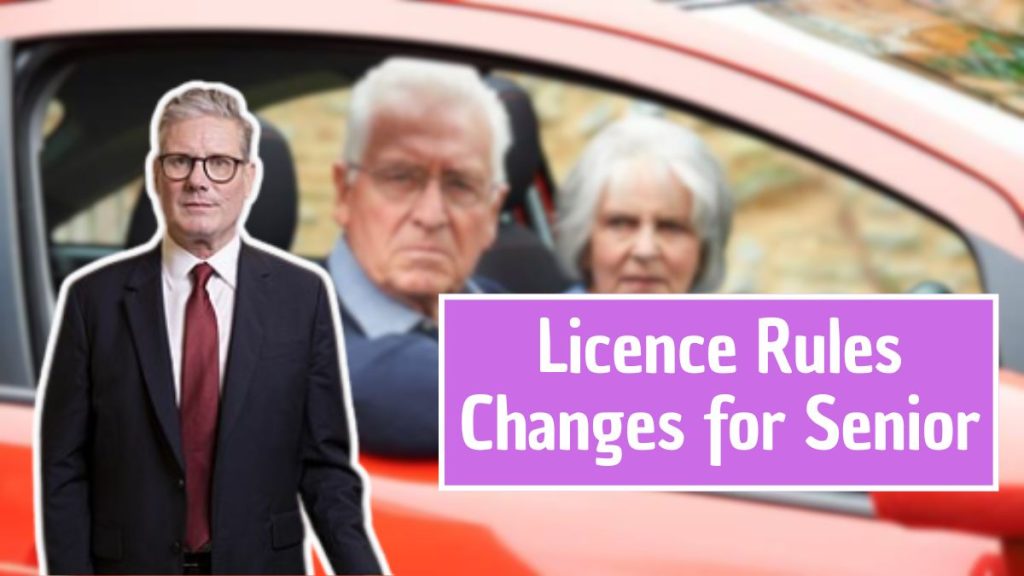Universal Credit was designed to help people on low incomes, regardless of whether they are working or out of work. Many claimants actually have part-time or even full-time jobs but still qualify because their earnings are below a certain threshold.
The system adjusts support based on your income level. For every pound you earn above the work allowance, your UC payment is reduced by roughly 55 pence, meaning you still receive partial help.
This makes Universal Credit a flexible system that supports both jobseekers and low-income workers alike.
In other words, UC is not just a benefit for the unemployed — it’s a safety net for anyone whose income doesn’t stretch far enough to cover essentials.
Myth 2: Any Savings Automatically Disqualify You
Truth: Savings only affect UC if they exceed specific thresholds.
The Department for Work and Pensions (DWP) ignores the first £6,000 of savings when calculating Universal Credit eligibility.
If your savings fall between £6,000 and £16,000, your entitlement will gradually decrease, but you won’t lose eligibility altogether.
Only those with savings over £16,000 are fully excluded from UC payments.
This means that having an emergency fund, modest savings, or a small inheritance won’t automatically disqualify you. Many people mistakenly believe any savings bar them from help — and that misconception prevents them from claiming legitimate support.
The message is clear: don’t let savings myths stop you from checking what you’re entitled to.
Myth 3: You Can’t Claim If You’ve Received Compensation
Truth: Not all compensation affects your Universal Credit claim.
In recent years, the government has made changes to exclude certain compensation payments from UC income assessments. For instance, money awarded for a miscarriage of justice or similar cases is no longer counted against your eligibility.
This change has opened the door for more people to reapply successfully, including those previously rejected due to compensation receipts.
If you’ve received any settlement or lump-sum payment, it’s important to review the latest rules or seek advice from Citizens Advice or Jobcentre Plus before assuming you’re ineligible
Myth 4: The Maximum UC Payment Is Only £400
Truth: The total amount you can receive depends entirely on your circumstances — and it can be much higher.
While single claimants under 25 may receive smaller amounts, couples over 25 can get up to £628.10 per month as a standard allowance. Additional elements may increase this further, including:
- Child elements for parents
- Housing support for rent costs
- Disability or carer elements for those with health conditions or dependents
The exact figure depends on your household composition, income, and expenses. Many people underestimate their potential entitlement because of outdated figures or incomplete information.
Simply put, Universal Credit is not capped at £400 — and understanding the right calculation could make a huge difference to your finances.
Why These Myths Are So Costly
Every month, thousands of eligible claimants miss out on money they could be receiving because they believe one of these myths.
The combination of misinformation and confusion surrounding UC often discourages people from applying or reporting changes that could increase their payments.
With the cost of living remaining high and household bills continuing to rise, accurate information about benefits is more important than ever.
Use a Benefits Calculator
One of the simplest ways to find out what you’re entitled to is by using a free online benefits calculator.
Websites such as Turn2Us, EntitledTo, and Policy in Practice provide quick, reliable tools where you can input your details and get an estimate within minutes.
These calculators take into account your income, savings, rent, and family situation to give you a realistic picture of your potential UC payments.
Checking this before applying can save time — and prevent mistakes.
Get Expert Advice from Support Services
If you’re unsure about your eligibility or how to apply, organisations like Citizens Advice, StepChange, and your local Jobcentre Plus can provide free support.
They can also help correct payment errors, challenge incorrect DWP decisions, or guide you through the appeals process if your claim is refused.
Professional guidance can make a big difference, particularly for first-time claimants or those juggling multiple benefits.
Report Changes Quickly
Universal Credit adjusts automatically based on life events — but only if you report them on time.
Changes such as a new job, childcare costs, moving home, or changes in your relationship status must be reported immediately.
Failing to do so could result in underpayments, overpayments, or even penalties.
Keeping your UC account up to date ensures you receive the correct amount every month.
Why This Matters to Every Household
For families living paycheck to paycheck, an extra £628 per month can completely change their financial situation.
That additional support can cover rent, pay energy bills, buy school supplies, or even build an emergency savings fund.
In a time when inflation continues to bite, Universal Credit isn’t just a government benefit — it’s a lifeline that keeps millions afloat.
Understanding the truth behind UC myths means ensuring you don’t miss the help you’re entitled to.
Breaking Down the Myths vs. Reality
| Myth | Reality |
|---|---|
| UC is only for unemployed people | You can claim UC while working; payments reduce gradually as income increases. |
| Any savings mean you lose eligibility | The first £6,000 is ignored; partial reduction between £6,000–£16,000. |
| Compensation stops eligibility | Some types of compensation are excluded from UC assessments. |
| Maximum UC is only £400 | Couples over 25 can receive up to £628.10 per month plus extra elements. |
These clarifications show just how much misinformation exists around Universal Credit — and how understanding the system can unlock valuable financial support.
Steps to Take if You Think You’re Missing Out
- Check your eligibility using an official calculator.
- Verify your details with the DWP or Jobcentre Plus.
- Keep track of your benefit journal online for any changes.
- Seek advice early if you think you’ve been underpaid.
- Challenge decisions you believe are incorrect — appeals are often successful when backed by evidence.
The Bigger Picture: Universal Credit as a Lifeline
Since its rollout, Universal Credit has faced criticism for being complex, but it remains one of the UK’s central support systems for working-age people.
Despite its challenges, UC provides flexible, income-based support that adjusts to real-life changes — helping millions during unemployment, illness, or low-wage work.
As the economy continues to shift and costs rise, understanding your rights under UC is not just about claiming money — it’s about ensuring financial stability for your household.
Don’t Let Myths Stop You from Claiming
The biggest lesson for potential claimants is simple: check facts, not assumptions.
Relying on outdated information or hearsay can mean missing out on hundreds of pounds a month.
Whether you’re working, caring for family, or managing a health condition, UC is designed to adapt to your needs.
By using official tools and seeking trusted advice, you can make sure the system works for you — not against you
Why Knowledge Equals Financial Power
Information is your strongest ally. Every household that learns the truth about Universal Credit gains the ability to make informed financial choices.
From using benefit calculators to consulting experts, small actions today can protect your long-term security.
The DWP continues to refine UC’s design to make it simpler and more transparent, but until then, understanding the system is key to avoiding missed opportunities.
Key Takeaway
Universal Credit is more flexible than many realise.
You can claim it if you’re working, have modest savings, or even have received certain types of compensation.
The biggest risk isn’t overclaiming — it’s not claiming at all because of misinformation.
If you think you might qualify, check today. The difference could mean hundreds of pounds each month — and vital peace of mind.
(5) Five FAQs
Q1. Can I claim Universal Credit if I work full-time?
Yes. Universal Credit supports people on low incomes, including full-time workers. Payments reduce gradually as earnings rise.
Q2. How much savings can I have before it affects Universal Credit?
Savings up to £6,000 are ignored. Between £6,000 and £16,000, your entitlement decreases gradually. Savings above £16,000 usually disqualify you.
Q3. What’s the maximum Universal Credit payment I can receive?
Couples over 25 can receive up to £628.10 per month, with additional elements for children, housing, or disability.
Q4. Does receiving compensation stop my Universal Credit claim?
Not necessarily. Some compensation types are excluded from income calculations, depending on the case and reason for payment.
Q5. What should I do to avoid losing out on UC payments?
Use an official benefits calculator, report life changes quickly, verify your details with the DWP, and seek free advice from Citizens Advice or Jobcentre Plus.



















